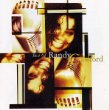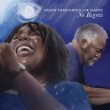Randy Crawford
Randy Crawford
From the day Randy Crawford first started recording professionally; her soulful voice has always poured out a special joy and has provided a spontaneous direction as to how a song could take shape. She was especially successful in covering popular hits for others -- keeping the melody intact without sacrificing her ingenious vocal phrasing details. All these natural gifts were her bread and butter through her early career, yielding her critical acclaim but not consistently high album sales. But with the release of the internationally-known R&B, jazz, and dance smash hit from 1979 - "Street Life" with the Crusaders - Crawford was delivered to the bigger stage.
Growing up, Crawford and her five siblings were all encouraged to sing as much as possible. The Georgia-born Ohio native embraced all sorts of music growing up from singing in the church choir to the nightclubs. When Crawford was ready to step out professionally and travel extensively, her father acted as her chaperone. Vocally mature beyond her years, Crawford had the privilege of performing overseas in France as a teenager, and fronting groups on the club circuit in New York City with modern jazz musicians Cannonball Adderly and George Benson and future Funkadelic bass guitarist Bootsy Collins.
Many of her associates immediately gravitated to Crawford's seamless vocals that balanced power and emotion. On the strength of her work with Benson's group, she released her first single, "If You Say The Word." Adderly personally chose Crawford to play Carolina for the 1975 folk musical: "Big Man: The Legend of John Henry." That year proved a turning point as Quincy Jones invited her to perform the jazz standard, "Everything Must Change," as a tribute for the late Adderly during an annual fundraiser for the World Jazz Association (WJA), backed by an orchestra conducted by Jones.
Everything Must Change was also the title of Crawford's debut recording for Warner Brothers. This recording session also included the jazz fusion giants The Crusaders. They also backed Crawford on their undisputed biggest hit to this date - "Street Life" - inspiring two action movie soundtracks, Sharkey's Machine and Jackie Brown; and several cover takes including Rashaan Patterson & Jill Scott. Of those musical cohorts who championed Crawford's voice in the early phases of her career, The Crusaders leader and co-founder Joe Sample was definitely her biggest advocate. Crawford continued collaborating with The Crusaders and Sample on her 1981 disc Now We May Begin and various reunion concerts. Her relationship with Sample came full circle in the millennium eventually leading to a performing duo with two recent discs to their credit.
Long after "Street Life" faded from the hit parade, Crawford developed an enviable reputation for reinterpreting pop, R&B, and country hits into refreshing musical canvases. This was a remarkable feat considering her albums like rarely achieved gold or platinum sales status, mainly because marketing could not pin down a category for Crawford's diverse song choices. The extraordinary list of covers includes the Brook Benton sweet country soul of "Rainy Night In Georgia;" "Imagine," one of John Lennon's masterpieces; George Benson's biggest R&B hit "Give Me The Night;" and a reunion with Sample on Journey's easy listening pop smash "Who's Crying Now." But Crawford had plenty of non-cover material that registered on either the domestic R&B or U.K pop charts, including "Nightline," "I Don't Feel Much Like Crying," "Last Night At Danceland," and "Bye Bye." In addition to her solo performances, Crawford showed her dexterity as a duet partner with Al Jarreau revisiting the sophisticated soul of Motown on "Your Precious Love;" and Italian pop superstar Zucchero on "Diamante." Crawford was also a guest of Zucchero on his "Live At The Kremlin" disc in a performance of "Imagine."
Audiences from all corners of the world continued their appreciation for the non-flashy soul/jazz stylist who regularly toured Europe, South Africa in a concert for Nelson Mandela, and in Tokyo, where she earned the Outstanding Performer award at the 1980 Tokyo Music Festival. She also developed a strong following in England during her recording tenure, and two sold-out appearances with the London Philharmonic Orchestra in 1988. There was a mild drought in her recording career in the early nineties, but she returned with two discs; Naked & True from 1995, and Every Kind of Mood-Randy, Randi, Randee; both tours-de-force exploring many genres. These efforts generated another tour of Europe in the mid-nineties and a new group of fans who appreciated Crawford's jazz/soul groove mixes.
With over two decades of discography, there were plenty of hit compilations, even following Crawford's decision in the millennium to cut back on new recordings. But that drought ended in 2006 as Sample and Crawford joined forces again for a series of intimate concerts in the U.S. with only Sample's trio as accompanists. These successful ventures inspired the 2006 Feeling Good and this year's No Regrets. The quieter arrangements by Sample on these PNA Records releases may have been a slight change of pace for Crawford compared to the fuller orchestrations of her previous solo work. Yet this musical tinkering never hinders their inseparable musical chemistry of piano and vocals. In fact, the near-stripped down sound on Feeling Good and No Regrets reveals more clarity to Crawford's uncluttered voice handling her business as usual with a variety of pop, blues, jazz, and R&B material. Clearly, these last two partnerships with Sample have added another wonderful musical chapter to the already satisfactory book of Randy Crawford's career.
By Peggy Oliver
Available Music
Video
| Video of the Month - Kinsman Dazz Band - "Wake Up" |
| Song of the Month - Darnell Kendricks - "What a Wonderful Night" |
| Listen Now! - The Fresh Soul Playlist |


